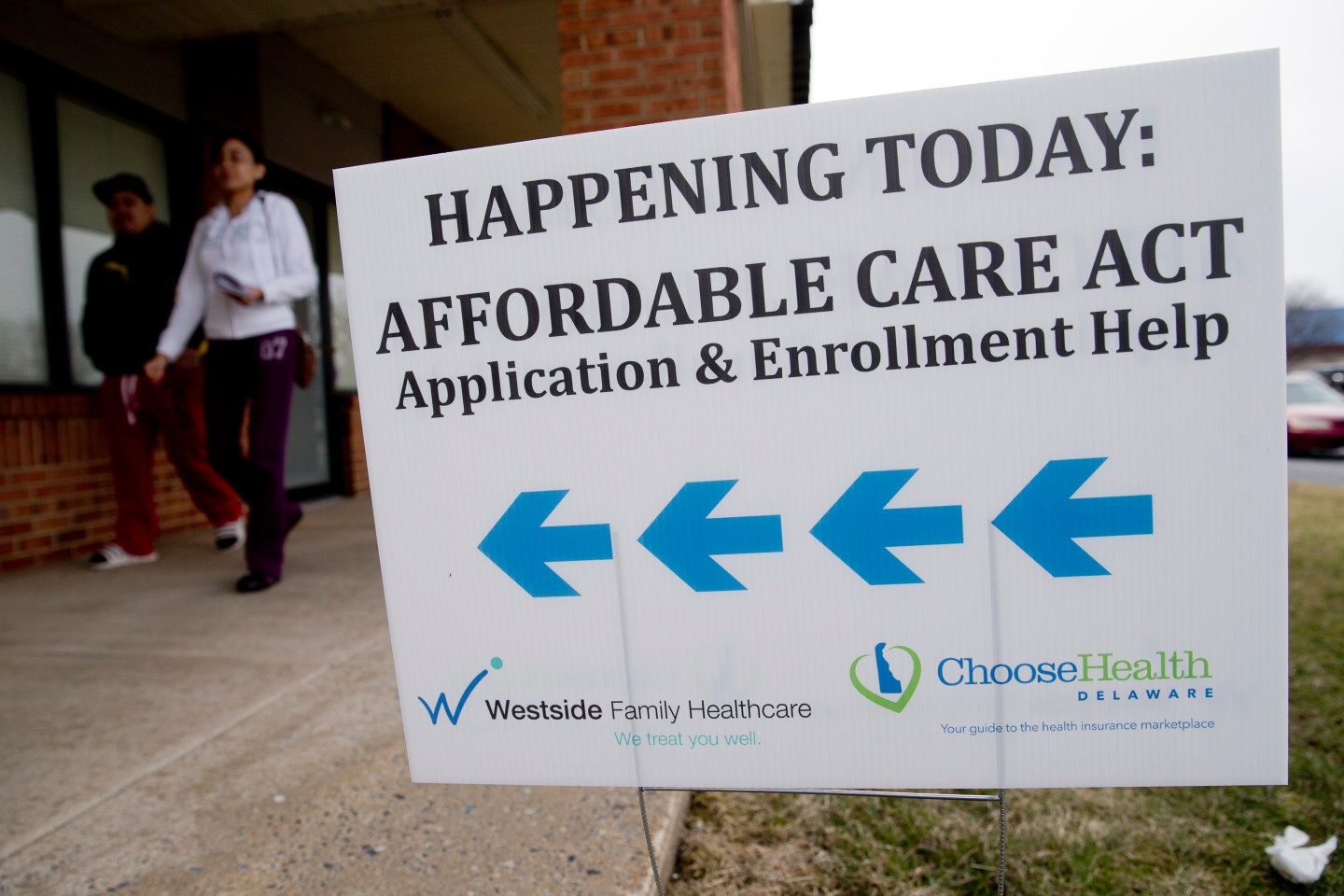Republicans are continuing their longstanding war against the Affordable Care Act (ACA), a.k.a. Obamacare. On Friday, the GOP leaders slammed a lawsuit that it claims could result in the Obama administration providing an illegal “bailout” for insurance companies.
The GOP-controlled House of Representatives on Thursday filed an amicus or “friend of the court” brief, challenging a lawsuit by Health Republic Insurance whose payouts have not been covered by revenue generated by Obamacare. Health Republic Insurance filed the suit against the government, arguing it should be reimbursed $5 billion under a temporary Obamacare provision meant to control health premiums by shielding insurer losses.
The House of Representatives’s filing asks the U.S. Court of Federal Claims to dismiss the suit, arguing a settlement by the government would amount to an end-run around Congress to fill insurers’ coffers, even though lawmakers have restricted the funding sources that can be used for these purposes.
At issue is the ACA’s “risk corridor” program, which is part of a trio of Obamacare premium-stabilizing mechanisms called the “3 Rs.” Risk corridors involve taking a slice of profits from insurance companies that set their premiums too high relative to how much they wound up paying in medical costs and redistributing that money to insurers that set these rates too low.
Subscribe to Brainstorm Health Daily, our upcoming newsletter about health innovations.
The provision was meant to help insurers during the wildly uncertain nascent years of the Affordable Care Act, when companies have had to guess just how sick their new customers would be and how much care they’d use. Many insurers didn’t do a great job of forecasting that out, as evidenced by rising premiums in numerous statewide Obamacare markets. (Most customers, however, won’t face the full brunt of those hikes thanks to federal subsidies provided by the law.)
Risk corridors have been a common element in other government-affiliated insurance programs, including the Medicare Part D prescription drug benefit that was passed by a GOP Congress and signed into law by George W. Bush. But congressional Republicans have balked at its use in Obamacare, painting it as a taxpayer-funded subsidy for wealthy insurers struggling under a flailing law.
Insurers have requested that the feds pay about $2.87 billion in risk-corridor payments based on their 2014 financial returns; however, the government announced earlier this year it would pay out just about 13% of the requested money since Congress has passed legislation requiring the money to be provided in a “budget-neutral and self-funding manner.” The drop in and uncertainty around requested reimbursements is part of the reason some insurers have dropped out of Obamacare’s marketplaces.
But with insurance companies like Health Republic and Highmark Inc. Crying foul and demanding the recompense they feel is owed to them, Republicans say the Obama administration could wind up settling the lawsuits, thereby defying the budget-neutral provisions favored by Congress.
The government argues this would be perfectly legitimate under its authority. “[A]s in all cases where there is litigation risk, we are open to discussing resolution of those claims. We are willing to begin such discussions at any time,” the Department of Health and Human Services wrote in a September memo.
“HHS… has recently announced its intention to give billions of dollars of taxpayer money to insurers under the program despite the clearly expressed intent of Congress to the contrary,” read the GOP’s friend of the court brief.












